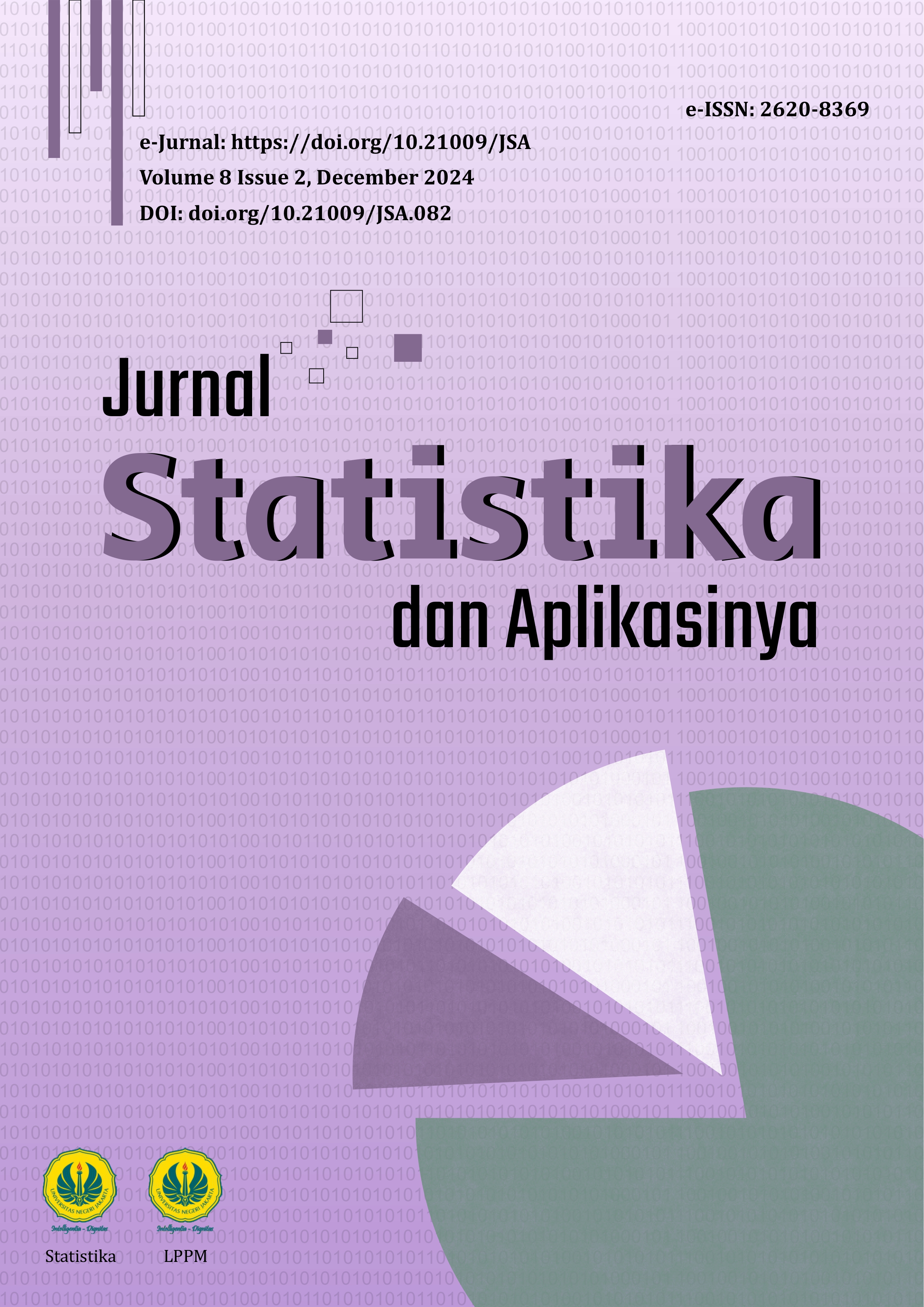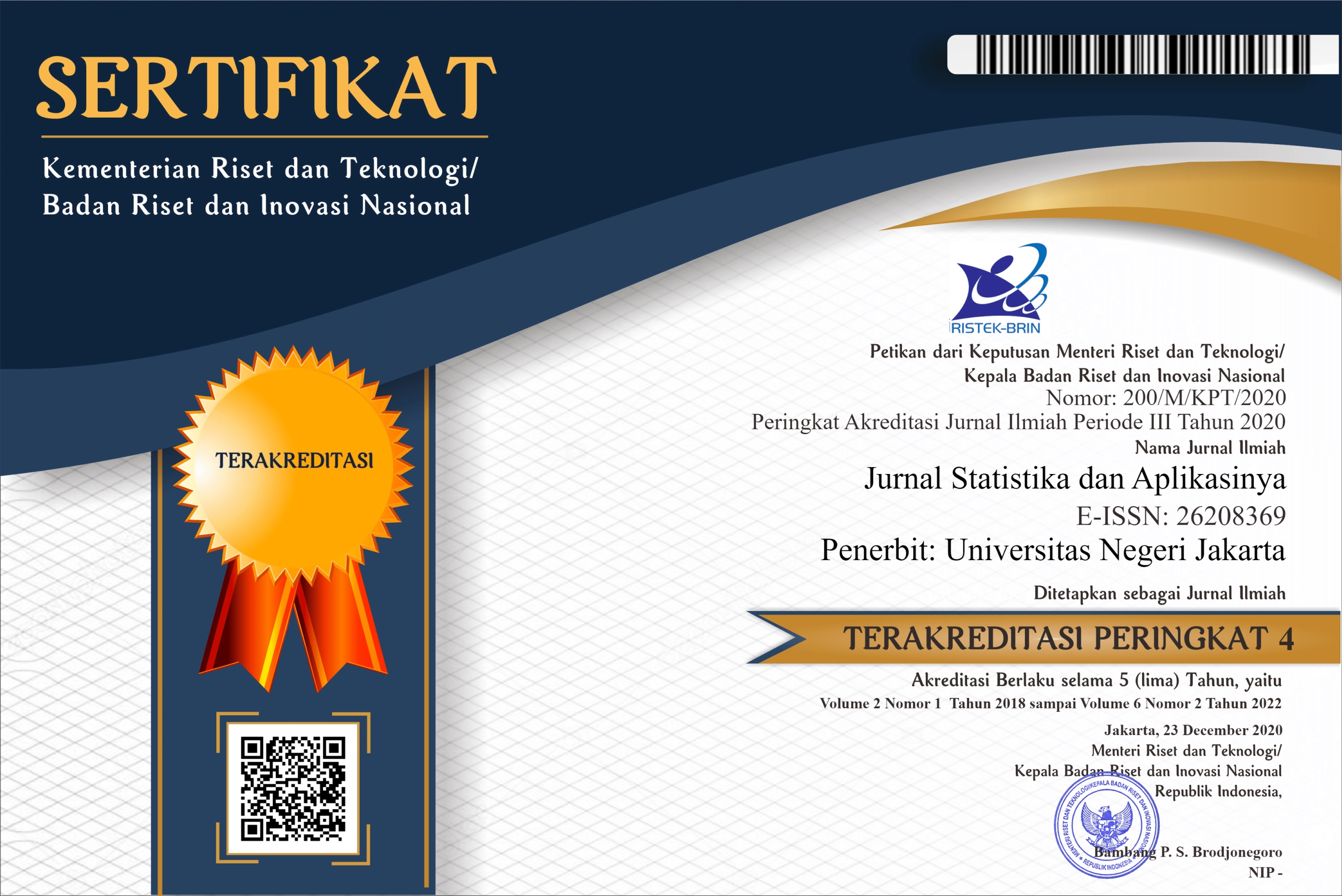ANALYSIS OF BICLUSTERING ITERATIVE SIGNATURE ALGORITHM ON POVERTY DATA IN SULAWESI ISLAND IN 2022
DOI:
https://doi.org/10.21009/JSA.08206Keywords:
Bicluster, Clustering, Mean Square Residue, MSRAbstract
Poverty in Indonesia is still a problem that must be addressed every year. According to the March 2022 Susenas report, Sulawesi Island ranks third among the six major islands in Indonesia in terms of the percentage of the population living in poverty. This shows that there are still many people living in poverty in Sulawesi. Therefore, the government needs to make the right policies to address this problem. One potential approach is to cluster districts or cities in Sulawesi based on poverty-related variables. The objective of this research is to group the data in two directions: first, by districts or cities and, second, by its variables simultaneously. The formation of these groupings will facilitate the development of the right government policies to address poverty. The appropriate method for these groupings is the biclustering method, which can group observations and characteristics simultaneously so that biclusters formed can be characterized differently. One of the biclustering algorithms is the Iterative Signature Algorithm (ISA), which requires an upper threshold value and a lower threshold value. The threshold value is the value used to determine whether a district or city and variables can be included in a bicluster. The best result is selected based on the average Mean Square Residue (MSR) per volume. Biclustering analysis of poverty data in Sulawesi in 2022 using ISA produced 2 biclusters. Based on these results, the government is expected to make the right policy to overcome poverty problems in Bicluster 1 and Bicluster 2.






